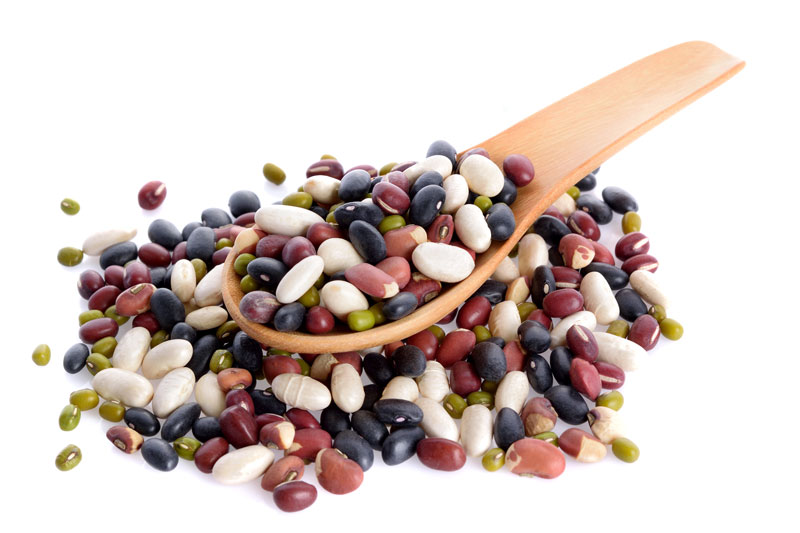What Are the Benefits of a Vegan Diet?
Something’s happening in the nation’s eating habits. More and more people are waking up to the huge health benefits of a plant-based diet, with many switching fully to a vegan lifestyle. Larger numbers of people than ever are signing up to take part in Veganuary every year, with an increasing proportion of them remaining vegan afterwards. So what is it they’ve discovered that’s convinced them to make such a fundamental change?
There are countless examples of animal products being bad for human health. We all know that red meat contains saturated fat which clogs arteries, for example. But did you know that adding dairy milk to your cuppa cancels the health benefits of the tea?[1] Or that men who eat around half an egg per day have a 14% increased risk of fatal prostate cancer?[2] Or that vegans were found to have a 9% lower amount of IGF-1, a hormone which encourages the proliferation of cancer cells?[3]
It’s clear a vegan diet warrants further exploration, so let’s take a closer look….

A vegan diet is one that embraces the magical powers of plant-based foods such as vegetables, grains, nuts and fruits, and refuses to have any part in the exploitation of animals for food. This involves spurning not only meat, fish, eggs, dairy and honey, but also ingredients like whey, gelatin, shellac (found in many sweets), tallow (found in some cooking fats) and cochineal (a red food dye, also known as E120).
How long does it take to lose weight on a vegan diet?
It’s just as easy to eat badly on a vegan diet, especially with more calorie-dense, nutrient-light vegan products being offered by multinational corporations – but the key for weight loss is to embrace a plant-based whole food diet. A randomised community-based trial studying the effects of a whole food plant-based diet on obesity, heart disease and obesity found that after two months, participants had radically improved their BMI and cholesterol levels, and lost an average of nearly 2 stone in weight – and unlike many diets, they maintained this weight loss.[4] The real beauty of this trial was that there were no calorie restrictions at all – participants were told they could eat all the plant-based whole foods they liked. A meta-analysis published in 2016 of twelve trials involved 1,151 people following various diets concluded that those following a vegan diet lost the most weight (5.5 pounds in 18 weeks).[5]
What are the benefits of being a vegan?
Study after study has concluded that eating animal products reduces life expectancy and massively increases the likelihood of chronic diseases such as diabetes, stroke and coronary heart disease. A study which looked at religious adherents who transitioned from a faith-based, meat-rejecting diet to a meat-eating lifestyle found that their odds of diabetes, stroke, heart disease and weight gain doubled or tripled, and they had a 3.6 year drop in life expectancy.[6] Apart from maximising your long-term health and longevity, switching to a vegan diet means you’ll reduce your carbon footprint hugely and opt out of being a participant in the exploitation of animals for food.
A vegan diet is colossally healthy. A large part of this could be because a vegan diet seems to make our beneficial gut bacteria very happy indeed, leading them to flourish and offer far greater protection against inflammation and the chronic disease it fosters.[7] Many studies have shown that veganism is linked to vast improvements in heart health, such as one from 2016 which showed that symptoms of heart disease rapidly improved with a plant-based diet, but returned after resuming a Western diet full of meat and dairy.[8]
How does being vegan help the environment?
We all know we have to do something to reduce the runaway effects of global warming, and limiting the emissions from livestock farming by moving towards eating a more plant-based diet will play a major role in this.[9] Research scientists at the University of Oxford published a report in 2018 which concluded that cutting out dietary meat and dairy products could reduce an individual’s carbon footprint from food by up to 73%.[10] This would reduce global farmland use by 75%, which equates to an area the size of the US, China, Australia and the EU combined.
[1]https://pubmed.ncbi.nlm.nih.gov/17213230/
[2]https://www.ncbi.nlm.nih.gov/pmc/articles/PMC4837898/
[3]https://cebp.aacrjournals.org/content/11/11/1441.long
[4]https://www.nature.com/articles/nutd20173
[5]https://www.ncbi.nlm.nih.gov/pmc/articles/PMC4699995/
[6]https://www.ncbi.nlm.nih.gov/pmc/articles/PMC4144108/
[7]https://www.ncbi.nlm.nih.gov/pmc/articles/PMC4245565/
[8]https://www.ncbi.nlm.nih.gov/pmc/articles/PMC4921549/
[9]https://science.sciencemag.org/content/370/6517/705.abstract
[10]https://science.sciencemag.org/content/360/6392/987







